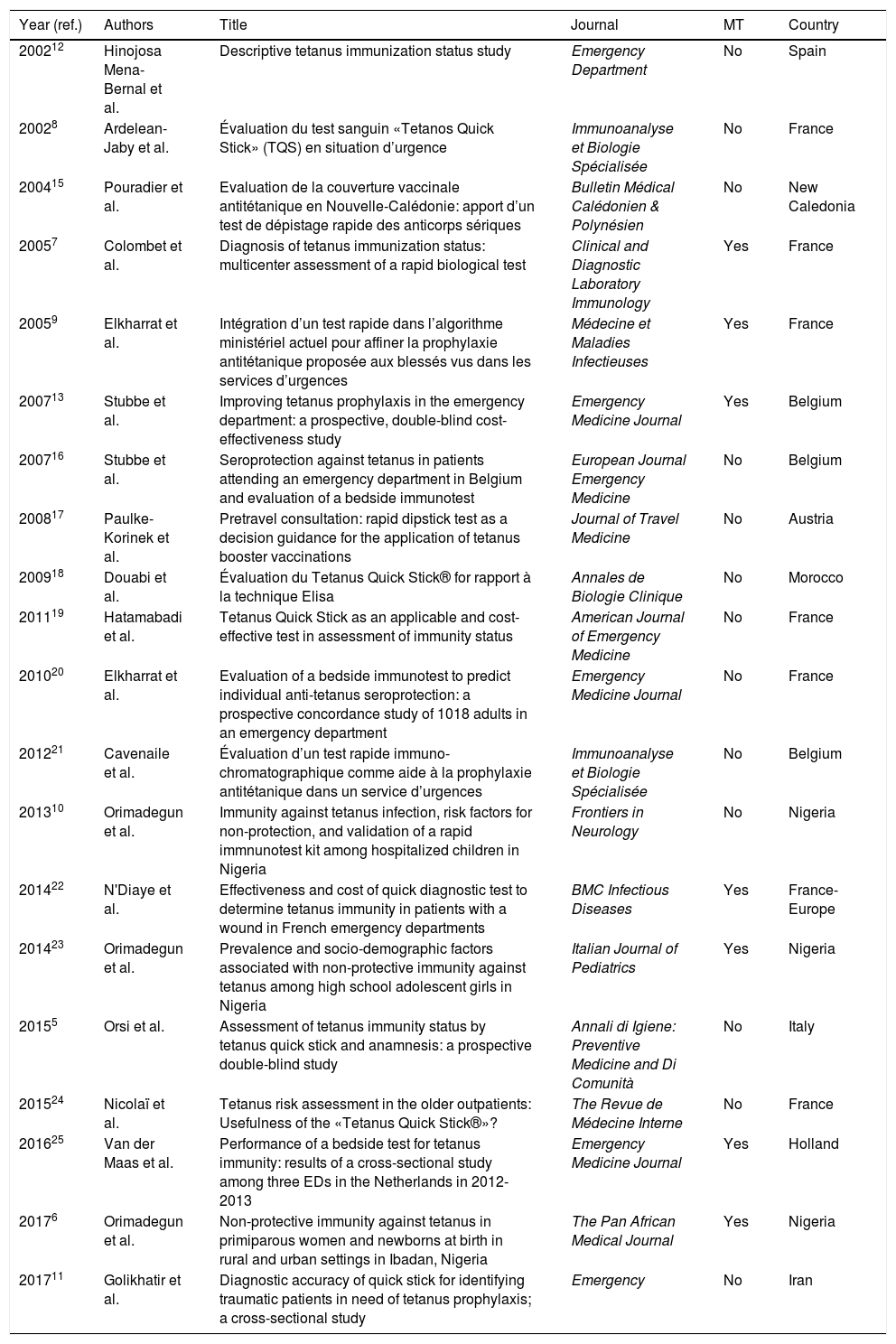Standard procedure when treating tetanigenic risk wounds (TRW) in an emergency room setting, usually includes administering a dose of gamma-globulin or/and a tetanus vaccine.
The rapid detection test (Tetanus Quick Stick TQS) can better the current procedure of detecting people who are not immunized. Our objective was to review and analyse the validity of the TQS test, and determine the cost-benefit with the data available.
We searched the following data bases for information: WoS, PubMed, EMBASE & SCOPUS. After reviewing articles and applying inclusion/exclusion criteria, we included 20 articles mostly European and written by Emergency room services. Sensitivity ranged from 55% to 100%, specificity from 66.6% to 100%, PPV: 81.1% to 100%, NPV: 42.9% to 100%. Most of the tests supported the cost-benefit analysis of the TQS test. We determined that in emergency room situations, it would be beneficial to use the TQS test, and a example of good clinical practice.
La atención a las heridas de riesgo tetanígeno (HRT) en los servicios de urgencias suele incluir la administración de gammaglobulina y/o vacuna antitetánica.
La prueba de detección rápida de anticuerpos frente a tétanos (Tetanus Quick Stick, TQS) podría mejorar la práctica clínica habitual al identificar a las personas no inmunizadas. Nuestro objetivo es analizar la validez de la prueba diagnóstica TQS y su coste-beneficio según la literatura disponible.
Realizamos una búsqueda en las bases de datos WoS, PubMed, EMBASE y SCOPUS. Tras aplicar criterios de inclusión y exclusión, se recuperaron 20 artículos, la mayoría europeos y redactados por servicios de Urgencias. El rango de los test de sensibilidad oscila entre 55–100%, de especificidad entre 66,6–100%, VPP: 81,1–100% y VPN: 42,9–100%. La mayoría de estudios avalan el coste-beneficio de la aplicación del TQS. Creemos que el uso del TQS en Urgencias sería recomendable y un ejemplo de buena práctica clínica.









